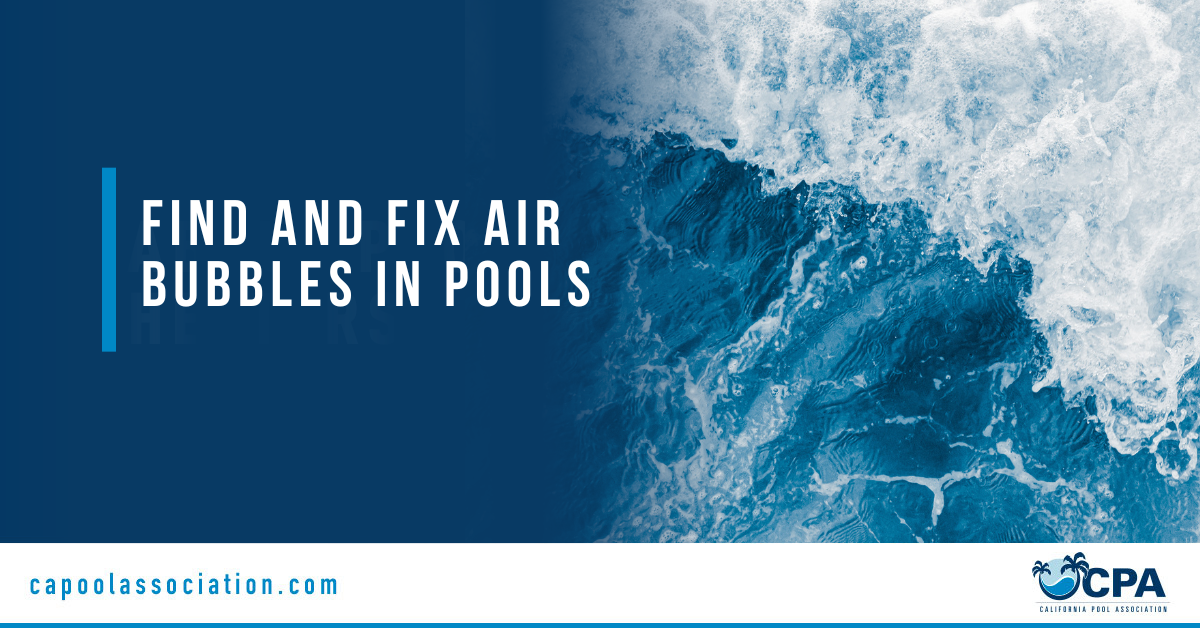
Your client decided to re-open their pool and the situation has been smooth so far, but you begin to notice a problem. Why does the pool suddenly have bubbles. Moreover, what is that loud grinding noise that seems to be coming from the pump?
Some bubbles from the pumps and inlets of the pool are normal, aggressive bubbles and loud churning could indicate a serious issue.
Any pool will occasionally have a few air bubbles, but if there are many of them coming from the return jets and you hear loud churning noises close to the pump, there is air in the pool line.
Excessive air bubbles in the pool are a sign that the filtration system is leaking, and air is being drawn in by the pool pump as a result. This typically suggests that the equipment above the ground is the problem’s cause.
Check the following items to see if the skimmer is the culprit:
In addition, the water levels in the pool should always be maintained with the utmost care and consideration. Optimal water levels allow a hassle-free swimming session without air leaks and extend the life of the equipment.
The water in the skimmer is sucked in by pool pumps. It creates a pool circulation by drawing water in and then pushing it out through the filter. To maintain the pool’s cleanliness and prevent the water from becoming stagnant, circulation is essential.
Make sure that the pump lid has no cracks and is tight. The pump can suck in air through the cover. It needs to sit in the correct groove and not be obstructed by any debris.
There are numerous unions in plumbing, whether they are for above-ground pools or in-ground pools. These unions have threaded connectors that make it possible to replace any pipe segment without having to remove any other pipes altogether.
If you are in the pool industry, you must be able to deal with them or find someone who can make the repair. Remodeling companies have used these air bubble fixing techniques for many years.
The California Pool Association (CPA) is a trade organization for owners of independent pool service, repair, and maintenance businesses. The association works on behalf of its members to provide affordable general liability insurance, wholesale pricing on equipment and supplies, and a large professional network. Contact us today to learn how you can benefit from membership in the California Pool Association.